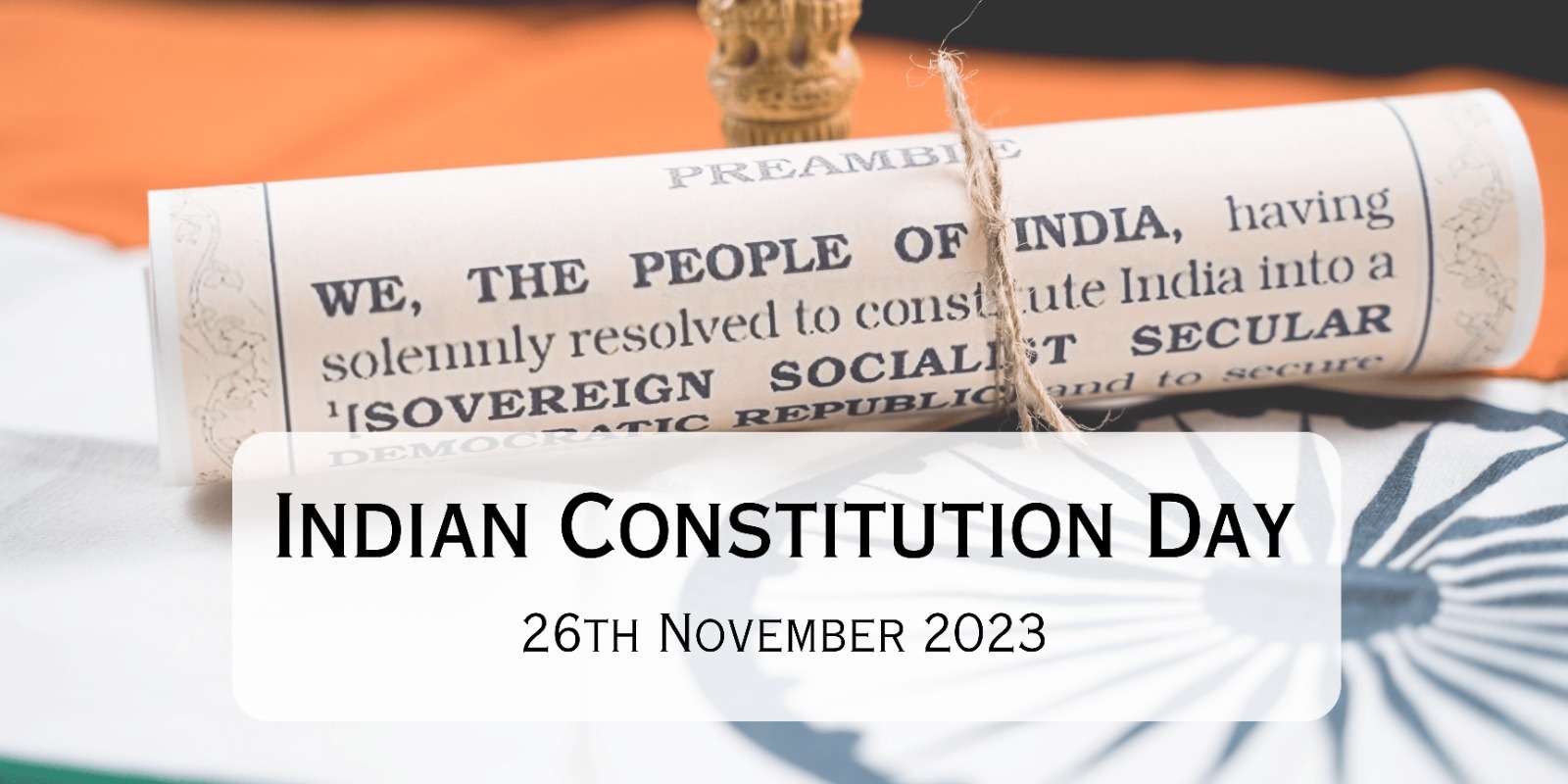Indian Constitution Day

Constitution Day, celebrated annually on November 26th, marks a crucial milestone in India’s democratic journey. This day is a poignant reminder of the visionary leaders who laid the foundation of our democratic principles and set the nation on the path of progress. As aspirants preparing for the UPSC examination, it is imperative to delve into the history, significance, and multifaceted aspects of Constitution Day to understand its relevance in the context of our democratic fabric.
History of Constitution Day
Constitution Day, also known as Samvidhan Divas, commemorates the day in 1949 when the Constituent Assembly of India formally adopted the Constitution of India. Dr. B.R. Ambedkar, the chief architect of the Indian Constitution, played a pivotal role in drafting this sacred document that serves as the supreme law of the land.
Significance of the Day
Constitution Day holds immense significance as it symbolizes the values of justice, liberty, equality, and fraternity enshrined in the preamble. It is an occasion to reflect on the democratic ideals that guide our nation and recognize the tireless efforts of the framers who worked towards ensuring a just and inclusive society.
The Theme: Upholding Constitutional Values
The theme of Constitution Day revolves around upholding the core principles embedded in the Constitution. It encourages citizens to understand, appreciate, and abide by the principles that govern the nation, fostering a sense of responsibility towards nation-building.
Importance of Constitution Day
Constitution Day serves as a crucial reminder of the responsibilities and duties citizens owe to the nation. It emphasizes the role of individuals in preserving and protecting the constitutional values that form the bedrock of our democracy.
The Preamble: A Beacon of Ideals
The Preamble serves as a guiding light, encapsulating the essence of the Constitution. As UPSC aspirants, it is vital to grasp the significance of terms like ‘justice,’ ‘equality,’ ‘liberty,’ and ‘fraternity’ contained in the Preamble, as they form the moral compass of our nation.
Democracy, Secularism, and Pluralism
Democracy is the cornerstone of the Indian Constitution, ensuring the participation of citizens in the decision-making process. Secularism and pluralism underscore the nation’s commitment to diversity and tolerance, fostering an environment where all religions and communities coexist harmoniously.
Fundamental Rights and Duties
Understanding and appreciating the Fundamental Rights guaranteed by the Constitution is essential. These rights, such as the right to equality, freedom of speech, and right to education, empower citizens and form the basis of a just society. Alongside these rights, the Constitution also emphasizes the importance of fundamental duties, reinforcing the idea of a collective responsibility towards the nation.
Challenges and Progress
While celebrating the achievements of our constitutional journey, it is imperative to acknowledge the challenges that persist. Issues such as poverty, discrimination, and access to justice demand continuous efforts. As aspirants, recognizing these challenges is essential for developing informed perspectives on the nation’s progress.
The Role of Education
Education plays a pivotal role in building an informed and empowered citizenry. Constitution Day serves as an opportune moment to reflect on the role of education in disseminating constitutional values and fostering a sense of civic responsibility.
Global Relevance
The principles enshrined in the Indian Constitution resonate on a global scale. In an interconnected world, where democratic values are cherished, understanding the Indian constitutional framework contributes to a broader perspective on governance and human rights.
Conclusion
In conclusion, Constitution Day stands as a testament to India’s commitment to democratic principles and the vision of its framers. As UPSC aspirants, a deep understanding of the historical context, the preamble, democratic principles, fundamental rights, and the challenges faced is crucial. Embracing the constitutional ethos not only prepares us for the examination but also instills a sense of duty towards the nation, ensuring that the flame of democracy continues to burn brightly. May Constitution Day serve as a constant reminder of our shared responsibility in upholding the values that define us as a nation.
Key Points for UPSC Aspirants
- Understand the historical context: Know the events leading to the adoption of the Constitution and the contributions of key figures like Dr. B.R. Ambedkar.
- Grasp the significance of the Preamble: Recognize the core principles encapsulated in the Preamble and their implications on the Indian democratic system.
- Comprehend the principles of democracy, secularism, and pluralism: Understand how these principles shape the social fabric of the nation.
- Familiarize yourself with Fundamental Rights and Duties: Know the rights guaranteed by the Constitution and the corresponding duties of citizens.
- Be aware of challenges and progress: Understand the challenges faced during the framing of the Constitution and subsequent amendments that reflect societal evolution.
- Recognize the role of education: Acknowledge the importance of education in building an informed and responsible citizenry.
- Appreciate the global relevance: Understand how the Indian Constitution serves as a model for democracies worldwide.
Tags:
Best teachers in every subject.
Let’s get started
We can teach you anything
